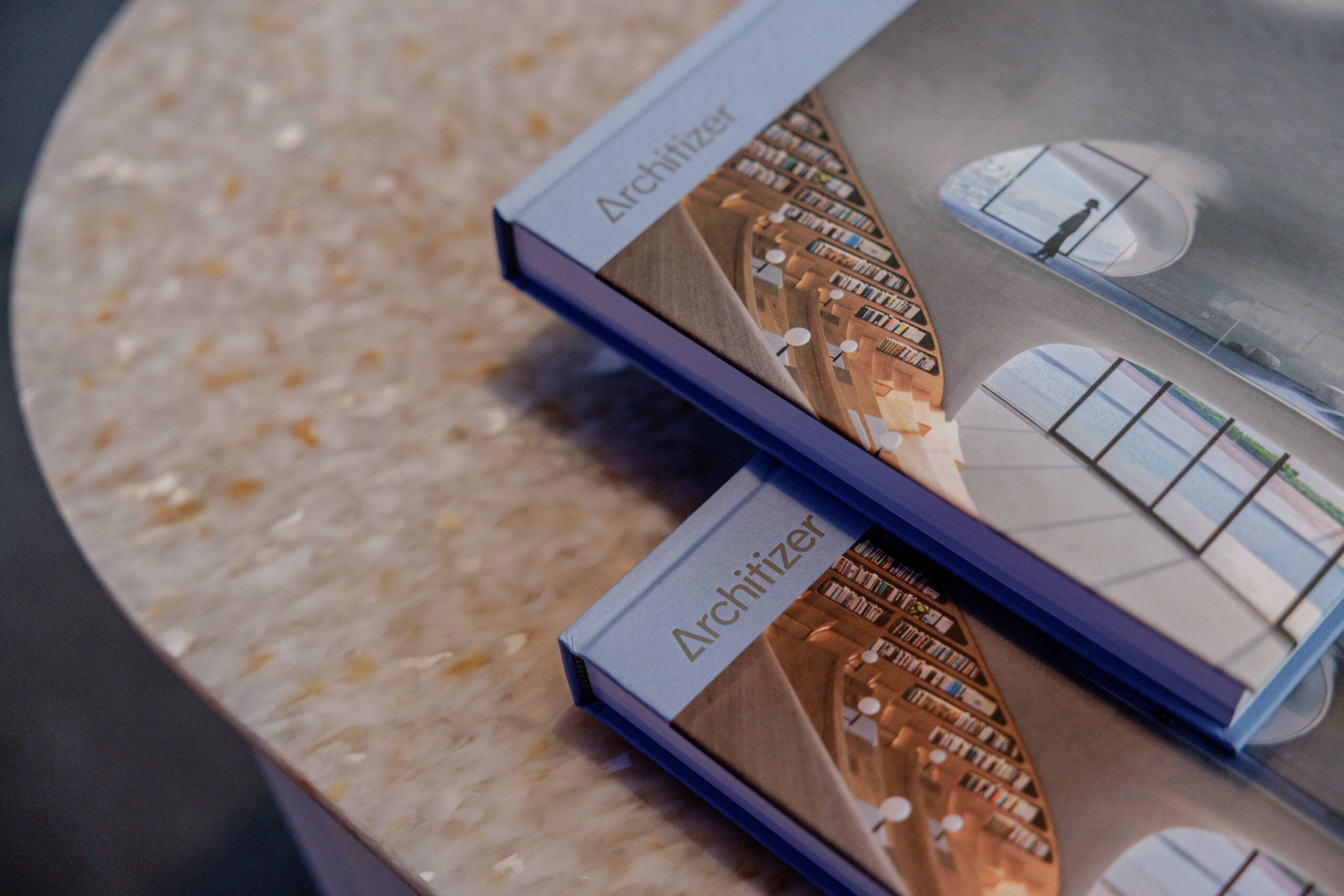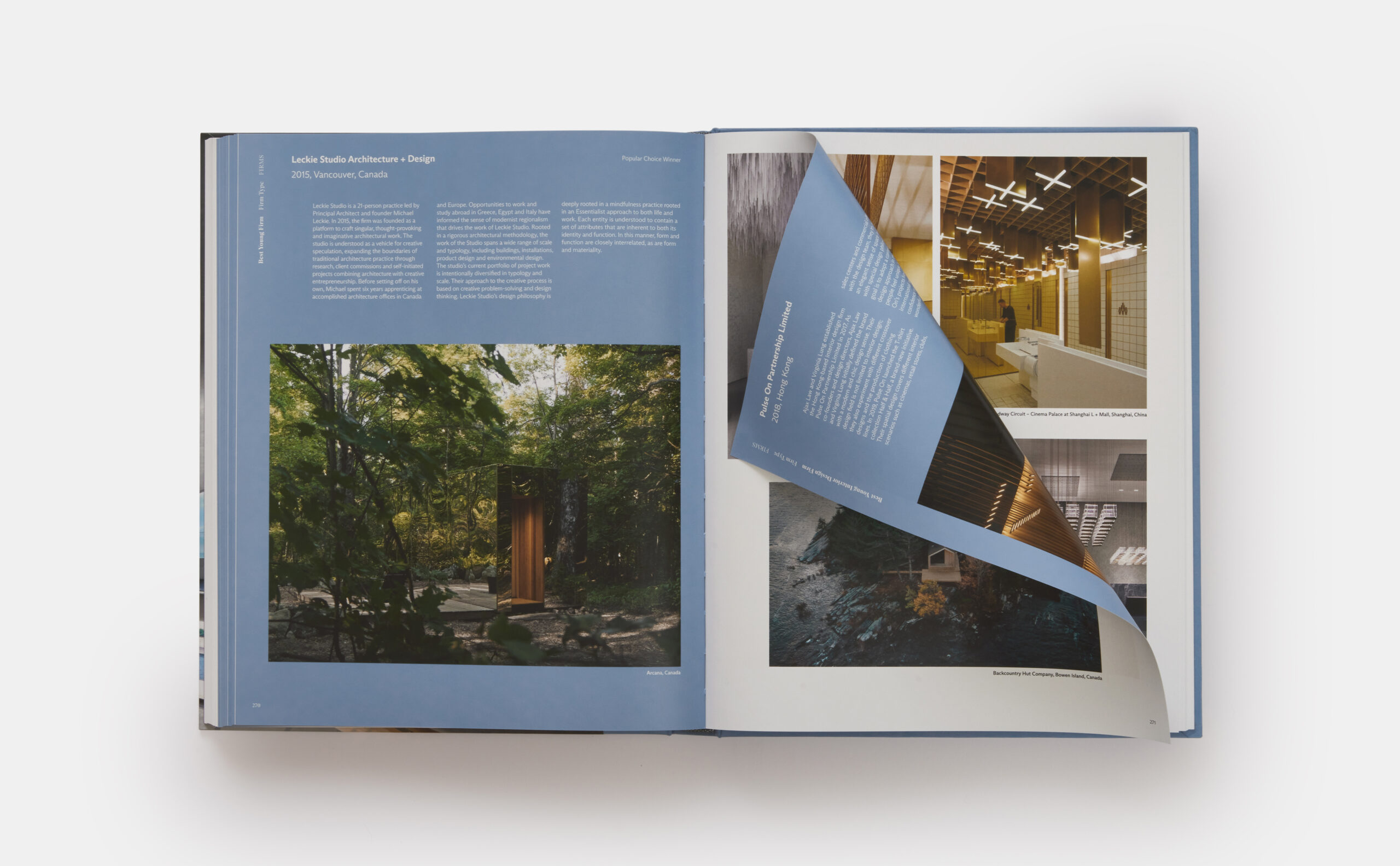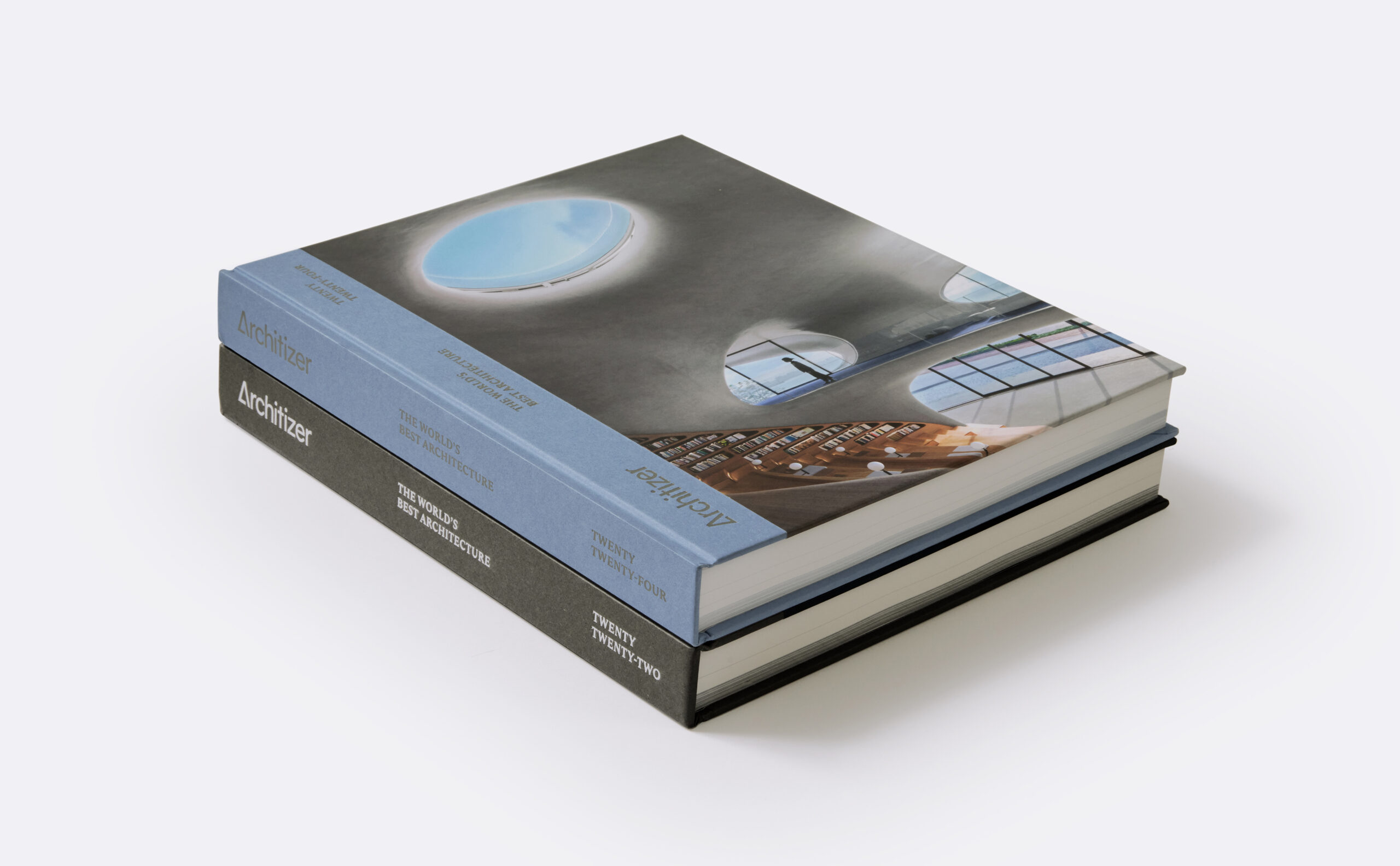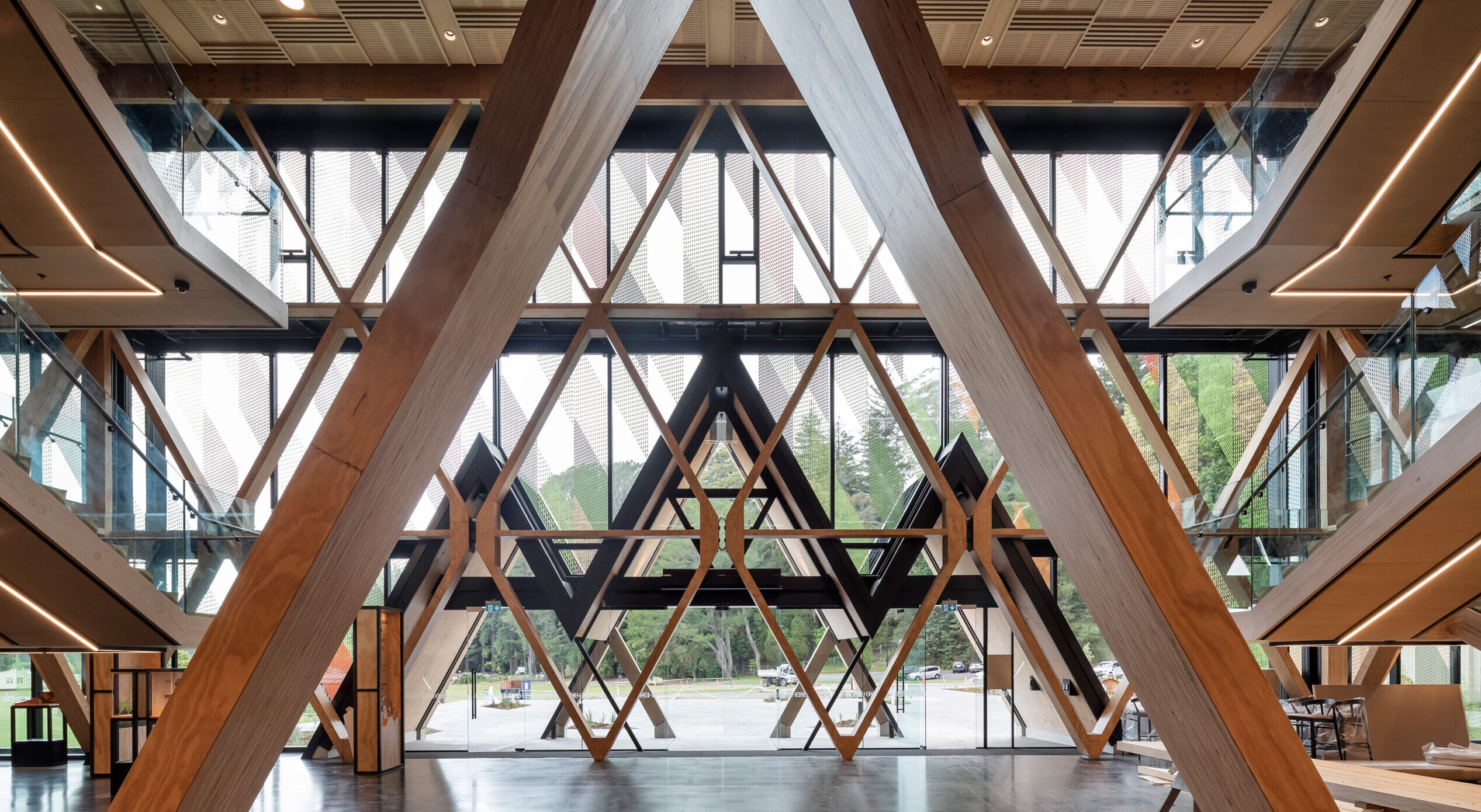The latest edition of “Architizer: The World’s Best Architecture” — a stunning, hardbound book celebrating the most inspiring contemporary architecture from around the globe — is now available. Order your copy today.
As I reach for a book tucked away on my bookshelf, I experience a sudden rush of nostalgia. It’s a volume I haven’t seen in years. Curiosity piqued, I pull it from the shelf, and as I crack open its pages, I recognize familiar characters and settings. The words within hold the power to reignite dormant memories.
Lost in the world within the pages, I am reminded of the irreplaceable value of printed books. The weight of the book in my hands, the texture of its pages, and the musty scent of aged paper all serve as poignant reminders of the enduring power of tangible reading material to evoke emotion, ignite imagination, and create connections across time and space. In this moment, I acutely appreciate the profound significance of hardcopy books in our increasingly digital age. My relationship with architecture and design, which we see online daily, is truly different on a page than on a screen.
Sensory Treasures: The Timeless Appeal of Hardcopy Books
Books serve as repositories of intellectual heritage, preserving the wisdom, stories and beliefs of past generations for future audiences. As they are passed down through time, they accumulate a history of their own, with each crease and annotation bearing witness to the lives they have impacted and the journeys they have undertaken. In a world where digital ephemera is everywhere, hardcopy books stand as enduring symbols of human creativity and innovation. They transcend the transience of the digital realm, evolving into cherished artifacts that connect us to our cultural roots and serve as portals into the essence of humanity, offering glimpses into the rich tapestry of human experience across generations and geographical boundaries.
Hardcopy books provide a tactile and immersive experience that cannot be replicated by digital formats. The weight of the paper, the texture of the cover, and the scent of the ink all contribute to a multi-sensory encounter that engages not only the mind but also the body of the reader. There’s a unique pleasure in turning the pages, feeling the texture beneath your fingertips, and visually appreciating the layout and design of each spread.
Echoes of Time: Visual Art Books as Cultural Time Capsules
In the realm of architecture, design, photography, and art, publishers such as Phaidon, Taschen, Thames & Hudson, Hatje Cantz Verlag, Laurence King Publishing, and Prestel Publishing to name only a few, have mastered the art of producing exquisite hardcopy books that elevate the reading experience to new heights. Their publications are not merely books; they are works of art in their own right, meticulously crafted to delight and inspire readers with their impeccable design, stunning visuals, and insightful commentary.
Hardcopy books serve as more than mere vessels of information; they are cultural artifacts that encapsulate the spirit of the times in which they were conceived. Each hardcover tome is a time capsule, preserving not only the ideas and narratives contained within its pages but also the historical and cultural context of its creation.
Architecture books exemplify this phenomenon with particular eloquence. Within the pages of these volumes, one discovers not only the evolution of architectural theory and practice but also a rich tapestry of societal values, technological advancements and artistic trends. From the ornate volumes of the Renaissance, reflecting the era’s reverence for classical ideals and humanism, to the sleek, minimalist designs of the modern era, echoing the ethos of simplicity and functionality, architecture books offer a window into the soul of each era they represent. The choice of materials, the printing techniques, the typography, the cover design and even the language used in the text, reflect the ethos and aesthetic sensibilities of its era.
Lost in Print: Embracing Undisturbed Focus in Hardcopy Books
In an era dominated by screens and digital interfaces, hardcopy books offer a sanctuary from the constant barrage of distractions. Browsing through their pages grants readers the luxury of diving deeply into the content, free from the myriad interruptions that permeate our digital lives. Unlike digital platforms besieged by pop-ups and banners clamoring for attention, the physical presence of a book offers a haven of undisturbed focus.
With each turn of the page, readers are transported into a realm where the only stimuli are the words, images, and ideas contained within. Hardcopy books invite readers to slow down, savor each word, and forge a deeper connection with the content. The act of turning physical pages offers a moment of respite and reflection, rekindling our appreciation for the beauty and magic of printed books amidst the digital age.
Order ‘World’s Best Architecture’ Now
This uninterrupted immersion creates an environment conducive to profound engagement, allowing readers to delve into intricate narratives, contemplate profound ideas, and luxuriate in the artistry of language and imagery. Freed from the constant barrage of external stimuli, readers can fully immerse themselves in the literary landscape before them, exploring its nuances and intricacies with unwavering attention.
This deep-level personal involvement between the reader and their book is a refuge from the hustle and bustle of modern life, a tranquil oasis where the mind can roam freely and thoughts can take flight without interruption. In this sacred space, the act of flipping through the pages of a book and deeply delving into its contents becomes a profound and transformative experience.
Beyond Comparison: Exploring the Dynamics of Books and Digital Platforms in Information Engagement
In today’s rapidly evolving landscape of information consumption, the palpable presence of printed books holds a significance that surpasses their content. Conversely, while digital platforms provide seamless accessibility and instant entry to vast realms of knowledge, they might lack the ability to evoke sensory engagement akin to physical books.
In this dynamic discourse on information consumption, the debate between traditional books and digital platforms extends beyond simple comparisons of superiority. It embodies a profound acknowledgment of the distinct experiences and opportunities each avenue presents in our engagement with knowledge. While our advocacy for the enduring significance of printed books as revered cultural artifacts remains steadfast, we cannot overlook the transformative impact of digital platforms on the accessibility and dissemination of information.
Digital platforms, with their unparalleled convenience, have revolutionized the way we interact with information, offering instant access to an extensive array of resources with just a few clicks or taps. Whether delving into the archives of a vast digital library or delving into specific research topics, these platforms empower us to broaden our intellectual horizons and deepen our understanding of the world around us in ways previously unimaginable.
However, this acknowledgment does not diminish the intrinsic value of printed books as tangible manifestations of our cultural heritage. While digital platforms excel in accessibility and efficiency, printed books offer a sensory experience that engages our tactile senses, ignites our imagination, and fosters a deeper connection with the content. It is within the coexistence of these two mediums that we discover a harmonious balance, enabling us to leverage the unique strengths of each while enhancing our intellectual pursuits and broadening our perspectives on information. In this dynamic interplay, we learn from history, culture, and the evolving landscape of knowledge dissemination.
The latest edition of “Architizer: The World’s Best Architecture” — a stunning, hardbound book celebrating the most inspiring contemporary architecture from around the globe — is now available. Order your copy today.








